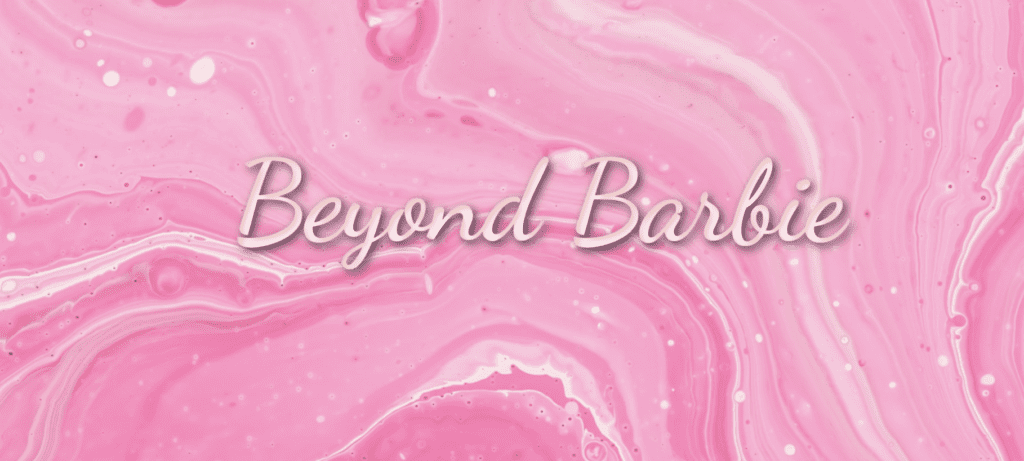
When I was eight, the girls in my neighborhood loved playing with dolls. I didn’t. I preferred to explore the Connecticut woods and ride around on my Schwinn bicycle. As the girls down the street were unwrapping their first Barbies on a sunny fall day, I cruised the area, wind in my hair, not knowing my world was about to change.

As I was biking along the road, a cream-colored sedan pulled up next to me, and a man called out, asking for directions. Good girl that I was, I put down my bike and walked over to help. But when I looked inside his car something creeped me out. I saw his trench coat—open—and something fleshy I didn’t recognize.
“Want to go for a ride?” he asked. Then, seeing a teenage boy approaching on a bike, he added, “Wait for me, I’ll be right back.”
I waited. But first I hailed the boy to help. We stood together and wrote down the license number of the car as it returned. With that information, the police tracked down the driver, a known kidnapper and child molester wanted in three states. I was proud that my intuition had saved me. But I didn’t realize that a new message had just become embedded in my bones, “When you’re a girl, the world’s not always safe.”
Off to Barbieland
I didn’t expect to watch this season’s blockbuster movie, Barbie, at least not on the big screen. But a friend, whose recommendations I trust, invited me to see it. “It’s fun and funny and more.” She was going to see it again—this time with her husband. I invited mine and we joined our friends at our island’s funky, and only, movie theatre.
During the first third of the film, I found Barbie super entertaining and funny, as I also waited for the more.
It came when Barbie leaves “Barbieland” (where women are empowered and run the show) and goes on a mission to the “real world” (thin plot details not important). The moment Barbie arrives in LA and begins to walk down the street, something changes for her: she doesn’t feel safe.
Welcome to the real world.
When she tells her insipid boy-pal Ken, “Something feels violent,” he doesn’t have a clue what she’s talking about. The world for him is opening up and he feels at ease, respected, and ready to take charge.
Fast forward through singing, dancing and spoofing about patriarchy, and more action-hero adventures, as Barbie endures her “existential crisis.” (Words from the movie promo.) Then, as the movie reaches its climax, we’re treated to a real and riveting speech.
It’s delivered by “Gloria, ” a Hispanic mom I consider the hero of the film. She leaves “the real world” and travels to Barbieland to help Barbie. (The role is played—perfect casting—by America Ferrera.)
Her speech brought me to tears and earned a spontaneous round of applause from the audience at the theatre. (It’s making media waves.)
The big monologue

I bet all the women in the audience (many of whom came with their daughters) along with the cool men (many of whom also brought their daughters) understood what Gloria was saying.
She tells Barbie:
“It is literally impossible to be a woman. You are so beautiful, and so smart, and it kills me that you don’t think you’re good enough. Like, we have to always be extraordinary, but somehow we’re always doing it wrong.
You have to be thin, but not too thin. And you can never say you want to be thin. You have to say you want to be healthy, but also you have to be thin…” (read the full text here)…“You’re supposed to stay pretty for men, but not so pretty that you tempt them too much or that you threaten other women because you’re supposed to be a part of the sisterhood.
But always stand out and always be grateful. But never forget that the system is rigged. So find a way to acknowledge that but also always be grateful. You have to never get old, never be rude, never show off, never be selfish, never fall down, never fail, never show fear, never get out of line.
It’s too hard! It’s too contradictory and nobody gives you a medal or says thank you! And it turns out, in fact, that not only are you doing everything wrong, but also everything is your fault…”
OMG, I thought, She has slipped truth into a blockbuster action flick.
Her words alone would have been powerful enough. Instead, they launched another speech in my head.
My talk

As I hung on to Gloria’s every word, another speech started running in my mind.
I remembered what it felt like to:
- Walk down the halls of power as a girl and see nothing but portraits of white men.
- Think that because you are smart and committed, you can get your fair share of power.
- Work hard to be heard, and still feel talked over and sometimes ignored.
- Listen to Anita Hill be shredded when she shared evidence about sexual harassment from soon-to-be Supreme Court Justice Clarence Thomas. Watch as male senators neither respected nor believed her.
- Feel angry about how you are being treated in a meeting, but realize that you can’t show it, and besides your male colleagues don’t deserve (you think) the Vesuvius of perhaps centuries-old anger that lives inside you.
- Swallow your feelings in order to be professional and not look weak.
- Try your darndest not to cry in a work setting after you’ve been deeply offended, then blow it when a tear leaks down your cheek.
- Have to walk down the middle of a street clutching your keys…just in case.
- Wonder if you aren’t defective for being the sensitive caring soul you are.
I bet that every woman watching that film had her own list.
That’s why Gloria’s speech gave me chills. Because she’s saying “You are not defective, less-than, weak, or unprofessional. You are real, complex, and contradictory, trying to operate in a system that is rigged.”
The real women behind the film

The day after I saw Barbie, I talked about the speech with a friend who had just taken his teenage daughter to see the movie. Turns out, he has worked with America Ferrara. “She’s the real thing. She’s an activist and a mom, stressed with trying to raise two kids. She’s ordinary.” And, we agreed, a brilliant actor.
So thank you writer/director Greta Gerig for creating the film and writing such a powerful monologue. Thank you Margot Robbins for a stunning performance as Barbie and for your activism . And thank you America Ferrera for standing up for women, (she was the first speaker in the Women’s March on Washington). Then, thank you for reminding us, through Gloria, that it’s OK to feel wounded. When the character is asked, toward the movie’s end, what kind of Barbie she would recommend creating, she replies Ordinary Barbie.
Yeah. Amen. Give women the right to be ordinary, imperfect, and inspiring. With fears, stress, angers, and acne. And let us be our powerful, contradictory selves.










